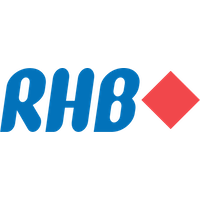
Great by Choice: Uncertainty, Chaos, and Luck--Why Some Thrive Despite Them All
- 821 Views
- 3 Wislist
- 6 Buy
RM141.00
| You save RM35.30 (26%)
- Supplier might delay due to reprinting or damaged condition.
- In the event of unavailability or being out of print, a full refund will be provided.
- Free Delivery
Orders over RM50 (only within Peninsular)
- Secure Payment
100% Secure payment
- Money Back Guarantee
If you did not get the book
- Customer Support
Within 1 business day
- Cashback
Earn 10 points (RM1) for every RM100 spent
- Buyback
Trade-in your used books now!(More info)
Print Length
320
Language
English
Publisher
HarperBusiness
Publication Date
11 October 2011
Dimensions
6 x 1.05 x 9 inches
Weight
0.59 Kg
Synopsis png-141.00-40-9781847940889
Jim Collins on the Writing Process

When I first embarked on a career that required writing, I devoured dozens of books about the process of writing. I soon realized that each writer has weird tricks and idiosyncratic methods. Some wrote late at night, in the tranquil bubble of solitude created by a sleeping world, while others preferred first morning light. Some cranked out three pages a day, workmanlike, whereas others worked in extended bursts followed by catatonic exhaustion. Some preferred the monastic discipline of facing cinder-block walls, while others preferred soaring views.
I quickly learned that I had to discover my own methods. Most useful, I realized that I have different brains at different times of day. In the morning, I have a creative brain; in the evening, I have a critical brain. If I try to edit in the morning, I’m too creative, and if I try to create in the evening, I’m too critical. So, I go at writing like a two piston machine: create in the morning, edit in the evening, create in the morning, edit in the evening…
Yet all writers seem to agree on one point: writing well is desperately difficult, and it never gets easier. It’s like running: if you push your limits, you can become a faster runner, but you will always suffer. In nonfiction, writing is thinking; if I can’t make the words work, that means I don’t know yet what I think. Sometimes after toiling in a quagmire for dozens (or hundreds) of hours I throw the whole effort into the wastebasket and start with a blank page. When I sheepishly shared this wastebasket strategy with the great management writer Peter Drucker, he made me feel much better when he exclaimed, “Ah, that is immense progress!â€Â
The final months of completing Great by Choice required seven days a week effort, with numerous all-nighters. I had naively hoped after writing Good to Great that perhaps I had learned enough about writing that this work might not require descending deep into the dark cave of despair. Alas, the cave of darkness is the only path to producing the best work; there is no easy path, no shorter path, no path of less suffering. Winston Churchill once said that writing a book goes through five phases. In phase one, it is a novelty or a toy; by phase five, it is a tyrant ruling your life, and just as you are about to be reconciled to your servitude, you kill the monster and fling him to the public. And so, exiting the caving blinking in the sunlight, we’ve killed the monster and hereby fling. We love this book, and have great passion about sharing it with the worldâ€â€making all the suffering worthwhile.
A Q&A with Morten T. Hansen

Q: How did you and Jim develop ideas together during the research?
Hansen: During our hundreds of research meetingsâ€â€what we called “chimposiums†(as when two curious chimps get together), Jim and I probed the data, exchanged views, and debated vigorously. We didn't always agree, in which case we did some more analysis to get to the main findings we report in Great by Choice.
Q: Why did Great by Choice take nine years of effort?
Hansen: When Jim and I started out some nine years ago, we did not anticipate that it would take us this long, nor did we know what the results would be. We followed a simple principleâ€â€carry out the absolutely best research we could possibly do, no matter how long.
Q: Did you find what you expected, or surprises?
Hansen: The way we did the research was to explore why some companies attained great performance over the long-run while others did not. We did not start with any preconceived ideas and hypotheses about what made the difference. We let the data speak. What we found, and what we report in the book, surprised us a great deal. A few times we scratched our heads because we were so surprised, but that's what the data revealed.
Q: Did you have fun?
Hansen: Analyzing the data, debating, and arriving at some really interesting insights was a great deal of fun. It created joy in my life. It may not be everyone's idea of having a good time, but Jim and I always looked forward to our chimposiums. I hope you will enjoy Great by Choice as much as Jim and I enjoyed the research process!
Contact Us
WhatsApp Us at 011-5356 2257
Delivery Services


Payment Methods

























No. B2-01 (Ground Floor : Facing LRT), E-tiara service Apartment, Persiaran Kemajuan Subang, 47500 Subang Jaya, Selangor





